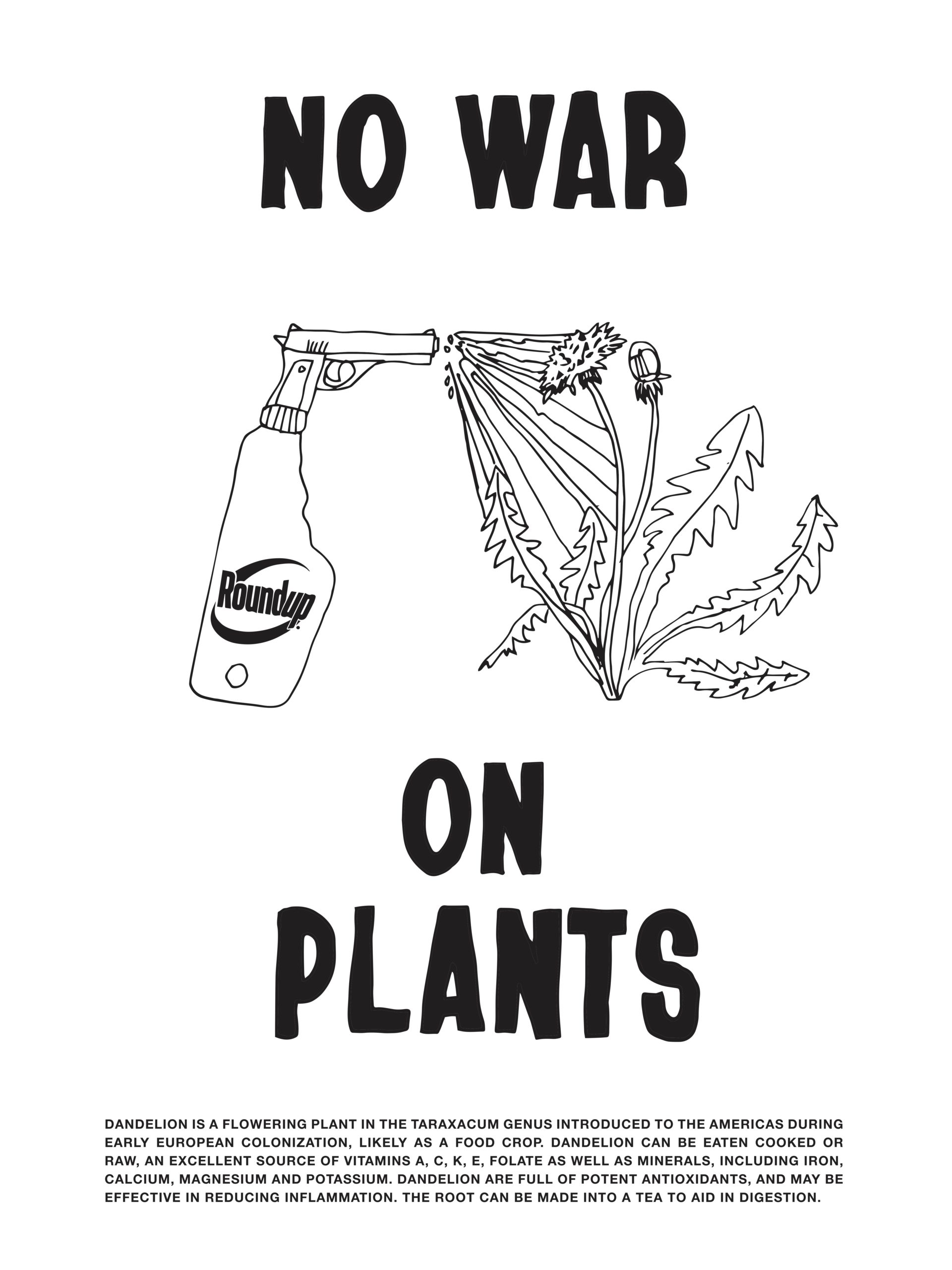
Glyphosate is one of the most common herbicides used across the US and world, first developed by chemist Henry Martin in the 1950s for the company Cilag. It was not widely used until 1974 when Monsanto (acquired by Bayer in 2018) brought it to market under the brand name “Roundup”. Although celebrated for its ability to inhibit the growth of so-called “weeds”, it is classified as a category 2A probable carcinogen by the International Agency for Research on Cancer, causes serious eye damage, is toxic to aquatic life, and more recently has be proven to increase the risk of non-Hodgkin lymphoma by 41 percent. Despite mounting evidence, Roundup is still available across the US and globe, with only a few cities, states or countries restricting use.
At my home in Austin, Texas I am woken up daily by the sounds of lawn mowers and ground crews spraying glyphosate on nearby lawns even though there is little vegetation left to manage in the wake of a multi-year drought. Fed up by the lack of “weedy resistance” in my own neighborhood, I created “No War on Plants” as a simple silkscreen print meant to be wheat-pasted along the streets of Austin. The work is a direct commentary on the complexities of industrial agriculture and the petro-chemical companies that feed their continued growth. But also a means to bring awareness to the varied benefits and services plants such as dandelion provide. A description appears at the bottom of the poster and reads:
Dandelion is a flowering plant in the Taraxacum genus introduced to the Americas during early European colonization, likely as a food crop. Dandelion can be eaten cooked or raw, an excellent source of vitamins A, C, K, E, folate as well as minerals, including iron, calcium, magnesium and potassium. Dandelion are full of potent antioxidants, and may be effective in reducing inflammation. The root can be made into a tea to aid in digestion.
We only have an estimated 50-60 years of arable topsoil left, largely due to extractive monoculture systems and the cult of Euro-centric lawn maintenance regimes that have no place in a time of extinction. Next time you think about grabbing that bottle of weed killer, or see it at your local hardware store, take a moment to consider the agency of our more-than-human allies. Even those we consider unwanted or pests.
